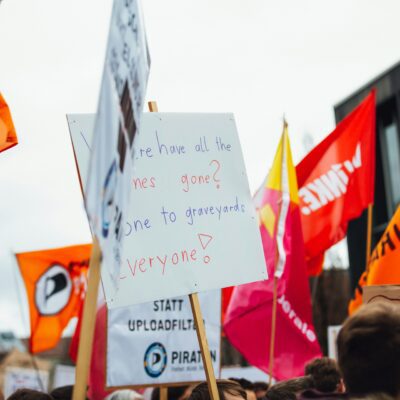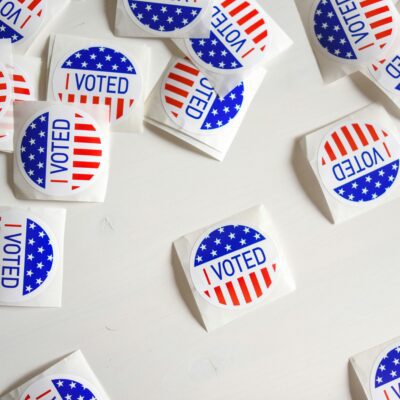Introduction to Political Polarization
Welcome to a deep dive into the turbulent waters of political polarization. In today’s world, where opinions are often sharply divided and tensions run high, understanding the complexities that drive this divide is more crucial than ever. Join us as we unravel the tangled web of factors shaping our current divisive climate and explore ways to navigate through it towards unity and cooperation. Let’s embark on this journey together to unpack the intricate dynamics of political polarization in our society.
Understanding the Roots of Polarization
Political polarization has deep-seated roots that stretch back through history, shaped by a complex interplay of social, economic, and cultural factors. It’s not just about differing political views; it often stems from deeper societal divides that have been exacerbated over time.
Historical events, such as wars, social movements, and economic shifts, have influenced the way people align themselves politically. These experiences shape individuals’ beliefs and values, contributing to the formation of polarized ideologies.
Psychological factors also play a significant role in fueling polarization. Cognitive biases can lead people to seek out information that confirms their existing beliefs while disregarding opposing viewpoints. This creates echo chambers where individuals are surrounded by like-minded individuals who reinforce their perspectives.
Moreover, the increasing influence of media platforms that prioritize sensationalism and clickbait exacerbates these divides by amplifying extreme voices and viewpoints. Understanding these underlying causes is crucial in addressing political polarization effectively.
The Role of Social Media in Political Polarization
In today’s digital age, social media plays a significant role in shaping political discourse and fueling polarization. The ease of sharing information instantly has amplified echo chambers, where individuals are exposed only to like-minded viewpoints. Algorithms further reinforce this by showing content that aligns with users’ beliefs, creating a cycle of confirmation bias.
Moreover, the anonymity and distance provided by online platforms can lead to dehumanization of those with differing opinions. This can escalate tensions and make it challenging to have productive conversations or find common ground. The viral nature of misinformation on social media also contributes to the spread of divisive narratives and conspiracy theories.
While social media has the potential to connect people globally, its impact on political polarization cannot be overlooked. It is essential for users to critically evaluate sources, engage in respectful dialogue, and seek out diverse perspectives to combat the negative effects of these online dynamics.
Effects of Polarization on Society and Democracy
Political polarization has seeped into the very fabric of society, causing rifts between friends, families, and communities. It creates an “us vs. them” mentality that erodes trust and empathy. As divisions deepen, constructive dialogue becomes increasingly rare.
In a polarized environment, decision-making processes become gridlocked as opposing sides dig in their heels. This stymies progress on crucial issues and leads to government inefficiency.
Polarization also fuels extremism on both ends of the political spectrum, making compromise seem like a distant dream. The demonization of the “other side” can escalate tensions and breed hostility.
As societal cohesion weakens under the weight of polarization, democracy itself is put to the test. When citizens are deeply divided along ideological lines, it becomes challenging to uphold principles of inclusivity and representation.
The effects ripple beyond politics; they permeate everyday interactions and shape individuals’ worldviews. The impact is profound – influencing how we perceive reality and interact with those around us.
How Can We Bridge the Divide?
Navigating the turbulent waters of political polarization can feel like an overwhelming task, but there are ways we can begin to bridge the divide. One approach is through active listening and seeking to understand differing perspectives without judgment. By fostering open dialogue and respectful communication, we can start to break down barriers that fuel division.
Empathy plays a crucial role in bridging divides as it allows us to connect with others on a human level, despite our differences in opinions or beliefs. Building empathy involves stepping outside of our comfort zones and truly trying to see the world through someone else’s eyes.
Another effective way to bridge the gap is through education and awareness. By staying informed about various viewpoints and engaging in critical thinking, we can challenge our own biases and contribute to more constructive conversations. In a time when polarization seems rampant, taking small steps towards understanding and unity can make a significant impact in building a more cohesive society.
Strategies for Overcoming Polarization
In the current divisive political climate, finding strategies to overcome polarization is crucial for fostering unity and cooperation in our society. One effective approach is promoting empathy and active listening. By truly understanding different perspectives, we can bridge the gap between opposing views.
Another strategy involves engaging in respectful dialogue with those who hold differing opinions. Constructive conversations can lead to mutual understanding and potentially finding common ground on certain issues.
Encouraging critical thinking and media literacy is also essential in combating polarization. By equipping individuals with the skills to analyze information critically, they can better discern fact from fiction and avoid falling into echo chambers.
Additionally, promoting diversity and inclusion both online and offline can help create a more tolerant society where different voices are valued. Embracing diverse viewpoints enriches discussions and fosters a culture of respect for all opinions.
Moving Towards Unity and Cooperation
As we navigate the complex landscape of political polarization, it becomes increasingly crucial to focus on moving towards unity and cooperation. By acknowledging the roots of polarization, understanding the impact of social media, and recognizing its effects on society and democracy, we can begin to bridge the divide.
To overcome polarization, it is essential to engage in open dialogue with those who hold differing viewpoints, actively listen without judgment, and seek common ground. Embracing empathy and humility can help foster mutual respect and understanding across ideological lines.
By promoting civic education that encourages critical thinking skills rather than promoting partisan narratives, we can empower individuals to think independently and make informed decisions based on facts rather than rhetoric.
By striving for unity through respectful discourse, collaboration across party lines, and a commitment to finding shared solutions for the common good, we can work together towards a more cohesive society built on cooperation rather than division. Together, we have the potential to transcend polarized politics and create a future where unity prevails over discord.





